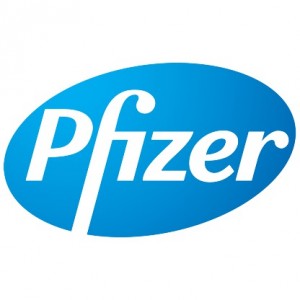 Pfizer recently failed to meet the primary endpoint of its phase 4 study to evaluate a treatment for fibromyalgia in adolescents, called Lyrica (pregabalin) Capsules CV. The company announced in a press release the top-line findings from the clinical trial, revealing that the goal was not achieved, since there was no observable superiority of pregabalin compared to placebo.
Pfizer recently failed to meet the primary endpoint of its phase 4 study to evaluate a treatment for fibromyalgia in adolescents, called Lyrica (pregabalin) Capsules CV. The company announced in a press release the top-line findings from the clinical trial, revealing that the goal was not achieved, since there was no observable superiority of pregabalin compared to placebo.
The double-blind, randomized, placebo-controlled study was designed to assess the safety and efficacy of Lyrica and included 107 adolescent patients between the ages of 12 and 17 years old, which were examined for 15 weeks. However, the investigators concluded that there was no statistically revelant difference regarding the impacts of Lyrica on the mean pain score in comparison with placebo.
The difference reported between patients treated with Lyrica and with placebo was only 0.66 points, equivalent to 1.60 points improvement of the baseline for pregabalin-treated patients and 0.94 points for placebo. Therefore, Pfizer was unable to establish the safety and efficacy of Lyrica as a treatment for pediatric fibromyalgia patients.
“Pfizer is committed to better understanding the full clinical profile of our approved medicines in pediatric and adolescent patients. This study advances the understanding of this patient population,” explained the senior vice president and Head of Global Medicines Development for the Pfizer Global Innovative Pharmaceutical business, Steve Romano, MD.
“Lyrica has more than 10 years of real world experience supporting the needs of patients and remains an important treatment choice for healthcare professionals. These results do not change the established benefit of Lyrica for its approved indications, including fibromyalgia in adults,” added Romano.
The study, which took place in several centers in the United States, as well as in Europe and Asia, was the the first large study focused on a pharmacological treatment in this kind of population. In addition, it was designed to fulfill requirements from the U.S. Food and Drug Administration regarding a post-marketing commitment signed by the time Lyrica was approved to treat fibromyalgia in adults.
The drug therapy is currently used in the U.S. for four different indications, in addition to fibromyalgia, most of them related to the management of pain. The safety profile demonstrated in the study was similar to the one already proven in previous studies with adults, except for mild nausea, which was reported at a higher rate in pregabalin-treated patients. The most common adverse events included dizziness, nausea, headache, increased weight and fatigue.
Juvenile fibromyalgia affects patients differently from the adults, and is more common among adolescent girls. It is also a chronic widespread pain syndrome difficult to diagnose, but advances made in understanding the disease in adults are improving diagnostic efforts in adolescents. A recent study conducted at the Cincinnati Children’s Hospital revealed that the American College of Rheumatology 2010 criteria established to diagnose adults can also be applied successfully by pediatricians to diagnose juvenile fibromyalgia.

